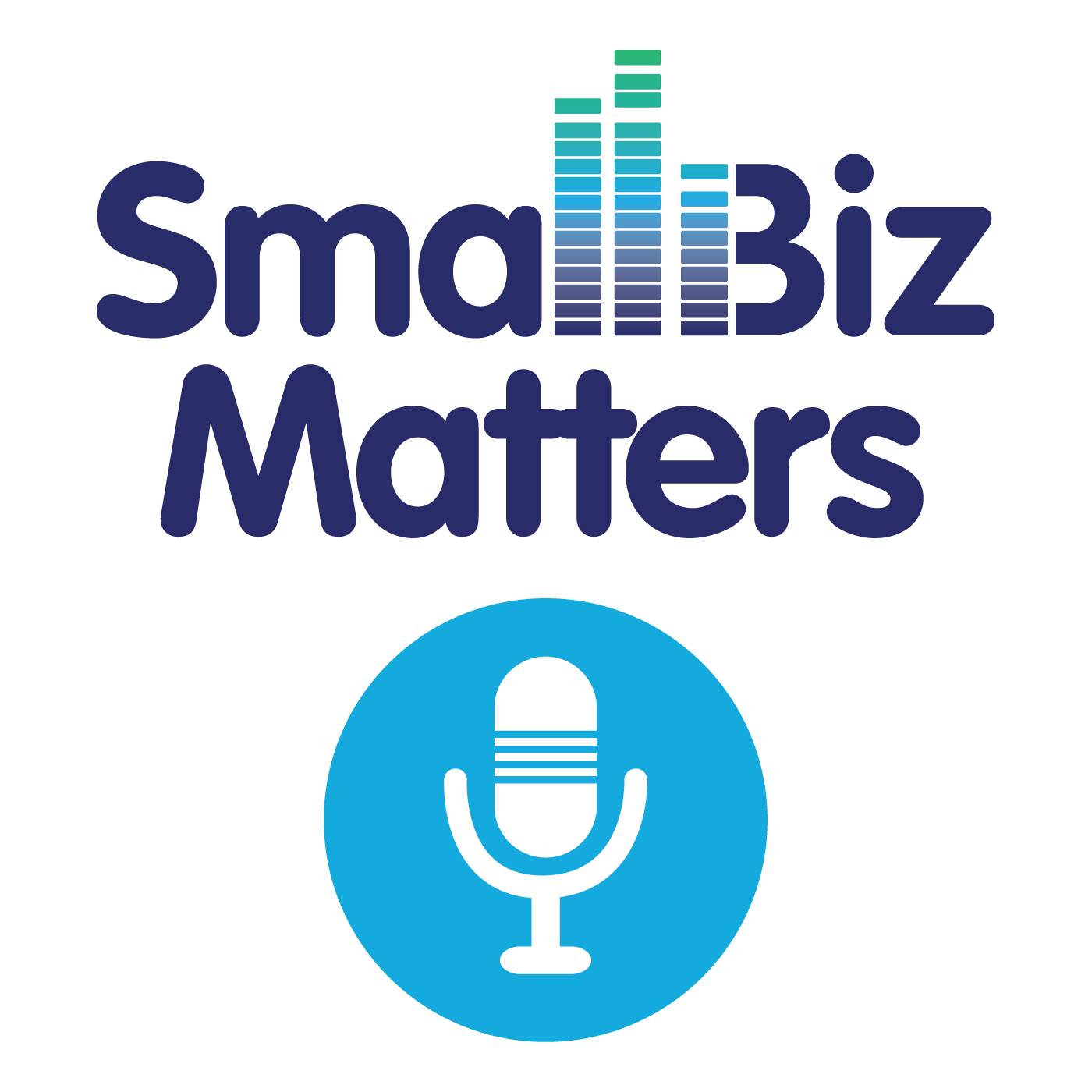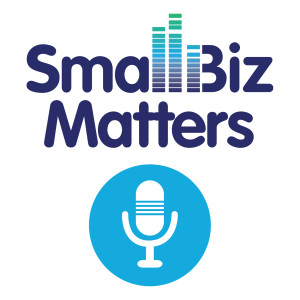
27.3K
Downloads
258
Episodes
The new Small Biz Matters program is all about People, Policy, Purpose. It is conversational and chatty and dedicated to empowering small businesses and their advisors to engage with policy and advocacy. Why? Because what Government does very much Matters to all Small Biz. Good and bad. A labour of love, in 2014 Alexi Boyd started broadcasting to give back to the local small business community. She knew information and support was lacking. Now with over 220 podcasts, the show is sought by PR Agencies and Government departments for its rich, informative content. Media Partners include universities, the Australian Tax Office, ASBFEO, COSBOA and international fintechs. Sponsored by the Australian Small Business and Family Enterprise Ombudsman’s office, each week we sit down with experts, advocates, business leaders, policy makers and politicians to dive into specific areas of government policy that affects your business and clients. We’ll give you a heads up on what’s coming down the policy pipeline, find out who’s fighting in your corner and empower you with ways you can influence those decisions which affect your business every single day. The program is broadcast weekly on Tuesdays live on local community radio Triple H 100.1FM, through the Community Broadcasting network, and wherever you get your favourite podcasts.
Episodes

Tuesday Apr 28, 2020
Tuesday Apr 28, 2020
Small Biz Matters – a half hour program each week where you can work ON your business rather than IN it.
with Alexi Boyd, broadcaster, advocate and small business owner.
Date: 28 April 2020
Is your industry in a downturn? (Join the club)...
But when it turns around, are you ready to hit the ground running?
Small Biz Matters is here to help you pirouette, pivot, adapt and revolutionise your business with two thought leaders from the Events and Real Estate industries. Two worlds turned upside down these past few weeks.They’re going to share with us two great examples which ANY business can learn from on how to adapt quickly using technology, out-of-the-box thinking and a bit of hard work.
A self-confessed real estate tragic, first we chat to Daniel Gunning who has taken his wealth of industry experience in commercial real estate and developed a strategy which any business could turn into a very different revenue stream.
Then Event Industry heavyweight Luli Adeyemo teaches us how Best Case Scenario flipped an event from traditional face to face to online in under 2 weeks whilst still maintaining the mantra that Content is King.
****************************************************************
Welcome to the show Daniel.
Topics we’ll be covering:
- Can you share insights into the current issues small businesses are facing when it comes to the under-utilisation of business space?
- There's always been an issue of under-utilised/unused business space, which represents a loss for businesses -many pay rent for space that they are not using to its fullest. But up until now that was quite an unseen loss, and one they could afford. With the current lockdown that issue has become top of mind, with unused space a prominent loss and threat to many businesses' survival around Australia.
- There is going to be a complete recalibration of how businesses operate, not only following the lifting of the lockdown measures but in the longer term. The transition period post-lockdown will be long, and new working and operating habits created, with flexible working and flexible business operations levels becoming the new normal.
- I will be key for businesses of any type to learn how to optimise space and create extra revenues via a better space utilisation.
- Why and how should small businesses rethink their use of space to adapt to a new world order, a new business reality?
- Changes to the market, new rules and adapt
- There's an opportunity for businesses to reduce their footprint, and adapt to an increasingly risk heavy environment and increasingly a new world order where markets, economies and Government-led directives change a very rapid pace
- Building resilience means becoming flexible, scaling up and down - including with physical business space - almost on demand to adapt to constant changes from the market or to face crises like Covid, bushfires. etc.
- Small businesses can build resilience and better balance their 'Rent to Revenue' ratio by both saving and making extra money with a better utilisation of space.
- What can businesses do now, in preparation for that new reality and transition period post lockdown?
- For many industries, the road to recovery is going to be long. Businesses cannot afford to sit on space they pay a rent for but that is underutilised. Right now is a very important phase for all small businesses, in particular in industries affected by the lockdown (i.e retail, hospitality, arts & culture,...). Now is the time to PREPARE the return back to a 'new normal'
- Businesses need to start thinking of new creative ways to use and optimise their space, either by renting that space out to others (i.e sole traders, other companies), or by even thinking of the creation of new services out of that space
- The idea is to foster more flexibility, and build a win-win scenario where someone in need can find cheap and flexible ways to use space, on-demand, while allowing the company woning the space to create extra revenue without needing extra investments
- Now is the time to invest in the technologies and digital platforms that will allow that scaling up and down and that flexibility that the business and economic world now requires
4.What are ways businesses, in particular in industries such as retail, hospitality, as well as for sole traders to use their space differently, to think more creatively and create new services?
- Examples of new services that can be created while social distancing restrictions are still in place : transform parking into drive-ins for cinemas, locations for live streaming for health and well being activities and retail, ghost kitchens for home delivery services, locations to park food trucks, retail/food drive through, delivery services, home delivered cocktails.
- Examples of ways to create win-win scenarios where an unused space can be rented out on demand by the hour, day or week (i.e a sole trader needing an office or just a desk 5h/week - they can get access to a great office space cheap, while the renting company can make an easy extra revenue) - The most common under utilised space in an office is usually the board room and unoccupied desks, car parking spaces. An example of a win/ win scenario is a business offering their boardroom and unused desk in the office to a sole trader for an agreed amount of time per week. alternatively, a company may operate their business between the hours of 8am - 5:30pm each day, the can rent there office to another business who may deal in international markets and they can use the office between the hours of 6pm to 9pm at night or they may rent there office out the a small business that rents there office from them on Saturday and Sunday when the other business is closed.
- Examples of ways the hospitality & retail industries can reach out to a corporate clientele by offering corporate packages during non-peak hours - Food and cocktail delivery packages, group retail sales via live streaming. Once self-isolation measures will be lifted, some restaurants and cafes can transform into mini coworking centres, rent out some of their tables/space to sole traders and freelancers, cafes closed at night can offer their space for corporate team building events, etc.
To find out more go to their website: https://spacenow.com/
About Daniel Gunning:
Daniel has Real Estate in his DNA with he and his family being prominent figures in Australia’s real estate industry, he has acted as director of commercial real estate group, Gunning Real Estate.
Currently CEO of Spacenow, he brings over a decade of commercial real estate experience to the Spacenow team having worked in all facets of property; property management, consultancy, transactional, managing sales teams, business operations and management.
Throughout his career he has worked on both sides of commercial real estate as representatives for buyers/tenants and for vendors/property owners in all types of real estate; Industrial/Retail/Commercial/hospitality which provides a thorough understanding of the pain points in workspaces and how they can adapt to new flexible real estate requirement within industries.
****************************************************************
Welcome to the show Luli.
Topics we’ll be covering:
- Why in your experience is it important to remember that regardless of the platform - online or in person - content is always king?
- Should you lower your expectations for an online event in terms of attendance and retention?
- Have you got any tips on how to keep your audience engaged throughout? Is this different to the face-to-face model?
- What tools do we have at our disposal (polls, breakout rooms, ways to engage the audience?)
- Does the prep change? Do you need to train your speakers, experts and panellists for this new online version?
- How is this different?
- Does the brief include lighting in their homes, presentation (such as clothing) and HOW they need to address the online audience?
- Why is a professional moderator so important when conducting events online?

No comments yet. Be the first to say something!